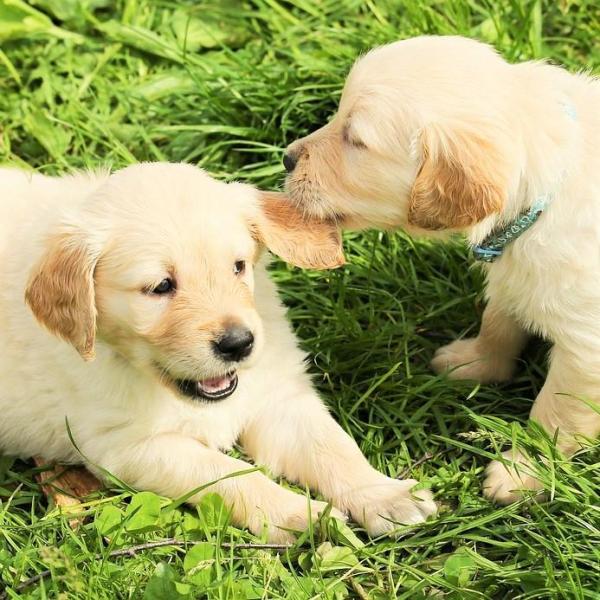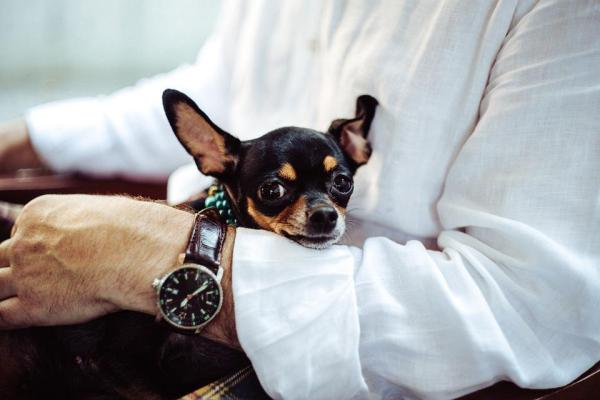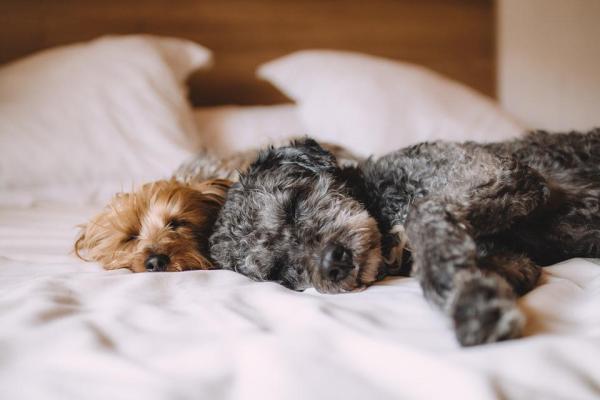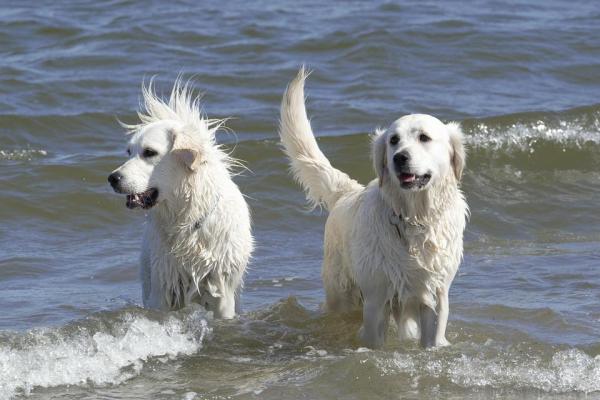Socializing Puppies and Adult Dogs



See files for Dogs
Socialization is the process by which dogs learn to relate to other dogs, animals and humans. Through socialization, dogs learn to get along with other pets and to differentiate adults from children. Habituation, on the other hand, is the process by which dogs learn to ignore environmental elements that aren't dangerous. Thus a dog habituated to an urban environment will not worry about the noise of urban traffic or by the presence of many people on the streets.
Although socialization and habituation are different concepts, in this AnimalWised article we will consider both within the process of socializing puppies and adult dogs. For practical process, we will show you the best way to teach your dog how to react without fear and aggression to different environments, people, other dogs and other animals.
Why is socialization so important?
Socializing puppies is essential in their education because it will prevent aggressive and fearful behaviors in the future. Furthermore, a well-socialized dog is easy to train and can be more easily accepted by other people and pets
What if you do not socialize your puppy?
If you choose to not socialize your puppy, you will eventually face a pet with notable social deficiencies, fearful of their environment and even aggressive. It will be much harder to take your dog for a walk, to the vet or anywhere else, because they will be afraid of everything and will not trust common scenarios.
How can you tell if your dog is well socialized? There's an easy way; if the owner is not afraid of something, a well-socialized dog won't be either.

Socializing a puppy
As in other animals, including humans, dog socialization is a process that lasts a lifetime. However, the critical period goes from birth to the twelfth week or third month of the puppy's life. Your dog will have many difficulties to adapt to their environment if not properly socialized before three months old.
Note that the critical period to socialize a puppy may vary for each individual. In fact, many experts believe that the critical period ends at 16 weeks, that is, four months. The important point is that the earlier you start socializing your puppy dog the more guarantees of success you will have.
How to socialize your puppy:
Socializing a puppy is very simple: you must introduce them to different people and pets on a regular basis. Hosting visits at home, go to a dog play area or just taking a walk are good choices to start this process.
Contrary to what some people think, you should not worry about the size of the other dogs but rather about their temperament. Ensure positive interactions and an atmosphere of games that will help your dog understand that relating to other dogs is positive and fun.
It will also be very important to visit different environments, for example the forest and the city, as your dog must learn to feel comfortable in both if you have to transit them regularly.
Details to be considered:
- The dogs that your puppy dog plays with have to be healthy to prevent any possible spread of diseases.
- All these dogs have to be sociable dogs. Most dogs aged two to three months are quite gentle, so this is not a concern when playing with other puppies. However, if you get an older playmate for your puppy, make sure they are sociable. See how that dog interacts with others before you put them together with your puppy.
- Do not socialize your puppy in parks or other public places until they have all their vaccines. Instead, organize meetings with healthy puppies in your home or at theirs. This way you will prevent your puppy dog from catching diseases.
- Do not forget the importance of teaching your puppy not to bite.
- Oversee all interactions of your puppy with other dogs.

Socializing an adult dog
As explained above, adult dogs that have not been socialized often show fearful behaviors by either hiding or barking menacingly at other dogs and people. Unknown situations cause fear and insecurity.
You should know that socializing an adult dog is a very complicated task since these dogs will have deep rooted fear and confusion provoked by unfamiliar situations or surroundings. Patience is key to help your dog understand the environment in which they live. Adaptation must be careful and gradual.
At AnimalWised we recommend having the process of adult dog socialization carried out or overseen by professionals, as they are able to correctly identify the physical signs of our dog.
How to socialize your adult dog:
The process can vary depending on the degree of discomfort the dog feels under certain stimuli. A dog that shows serious problems getting along with other dogs by barking excessively and even biting should not be forced in any way to relate to others: just preventing the barking can be considered a great achievement.
Deeply-rooted behaviors are difficult to treat and must always go by the hand of an ethologist or dog trainer that is an expert in such situations. Ideally, if you do not have enough resources to go to a professional you can help the dog by using positive reinforcement: reward situations in which they remain receptive and try to avoid encounters that will cause obvious discomfort and nervousness.
Although dogs can learn modify fearful behaviors, the truth is that this is very difficult to treat for a person with no previous experience in dog training. Especially in these cases, you must ensure that encounters with other dogs and people are always very positive and rewarding for the dog.
Have treats at hand, ensure the safety of the dog and of others - use a muzzle if you think it is convenient - and understand their situation; always treat them with patience. Never force a dog to do something they do not want to do and do not expose them to distressing situations. Practicing basic obedience commands on a daily basis can be a good tool to help them overcome their fears and improve your communication.

If you want to read similar articles to Socializing Puppies and Adult Dogs, we recommend you visit our Basic education category.








